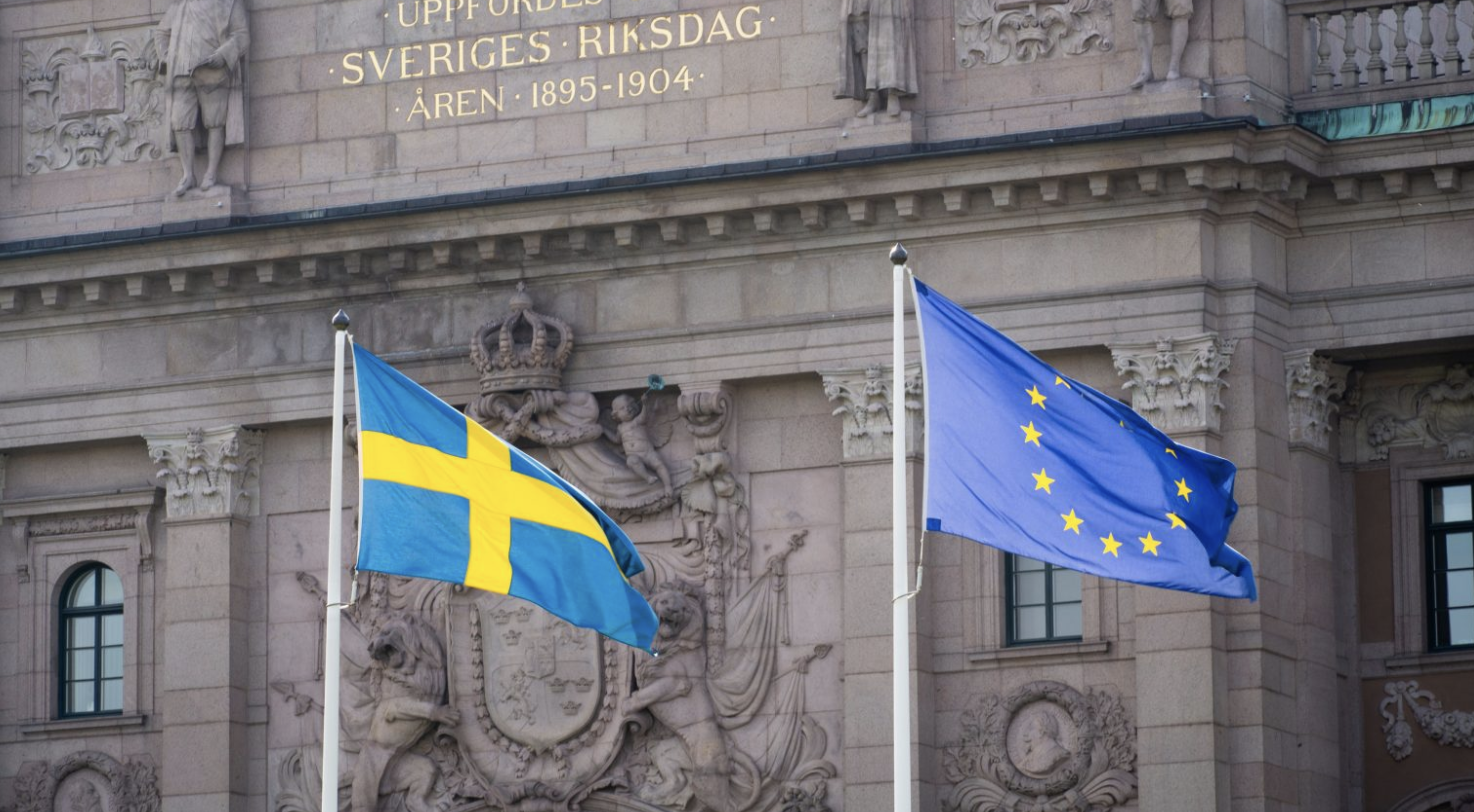Four ways to step up environmental ambitions during Sweden’s EU presidency

Introduction
This opinion piece is reposted from Euractiv, where it was originally published on November 14th 2022.
Sweden will take over the presidency of the European Council in January 2023, and it should take advantage of its mandate to increase the level of sustainability ambition of the European Union, argue members of the Stockholm Environment Institute.
When Sweden takes the presidency of the European Council at the start of 2023, the EU will be in a critical phase for delivering on its 2030 climate goals under the European Green Deal.
A top priority is expected to be successfully concluding negotiations for the “Fit for 55” package. But Sweden’s position as a sustainability forerunner, with high credibility and useful experiences to share, makes it well-positioned to go beyond the level of ambition of existing legislative proposals and seize the opportunity to step up the EU’s sustainability ambitions.
Sweden should use the presidency to ensure that increased ambition on the European Green Deal remains a central guiding response to the energy crisis.
Sweden should also initiate discussions on lessons from the European Green Deal and future priorities, thereby laying the foundations for an ambitious and transformative sustainability agenda that the next EU Commission can adopt after the current mandate period ends in 2024.
We outline four specific propositions for the incoming Swedish government to consider as it develops Sweden’s priorities for the presidency.
1. Ensure energy crisis response is aligned with climate goals
The Russian war on Ukraine has highlighted the EU’s vulnerability in its oil and gas dependency. It is critical that the short-term crisis response to address the EU’s energy security simultaneously contributes to the long-term crisis response to climate change.
Sweden must take a strong stand for treating these issues as two sides of the same coin and ensure that crisis response plans such as REPowerEU avoid large investments in new fossil infrastructure that would lock member states into fossil fuel use over longer periods of time.
Currently, the EU faces the risk of “backsliding” on climate goals and air pollution as member states turn to subsidise dirty coal and solid fuels for power generation and household heating. These actions risk reversing years of progress towards clean energy, with negative impacts on public health and climate neutrality ambitions.
Sweden must ensure that investments in renewable energy remain the priority. In parallel, energy efficiency should be prioritised.
Recent SEI research identifies this as an area with large potential in the EU, both in buildings and industry. The technology exists and can be implemented relatively quickly, but large investments are needed.
Sweden should lead by example by increasing its energy efficiency commitment towards the Energy Efficiency Directive and support other member states in doing the same.
2. Leverage trade to raise global sustainability standards and the EU’s competitiveness
Getting free and green trade back on the EU agenda should be a pillar in Sweden’s strategy to promote EU competitiveness.
Sustained efforts will be needed to include sanctionable sustainability standards in trade negotiations with Australia, India and Indonesia, as well as to enact Mercosur, Mexico and Chile deals into force with high sustainability standards.
Sweden can use its presidency to push for stringent and enforceable environmental and social criteria in all agreements that will come before the Council as well as complementary technical and financial assistance to support trading partners in the Global South to meet these standards.
By ensuring application to all trade agreements, the Swedish presidency has an opportunity to build on the momentum towards free, fair and green trade to raise global sustainability standards while also driving EU competitiveness.
3. Strengthen focus on transboundary impacts and justice in climate security and adaptation conversations
Similar to how the Covid-19 pandemic emerged locally but had global ramifications, so too can climate impacts in one region create ripple effects elsewhere. Small import-dependent countries like Sweden are particularly exposed to climate impacts in other countries.
Any attempt to reduce Sweden’s and the EU’s climate vulnerability must recognize that our resilience greatly relies on strengthening global resilience, such as by supporting the adaptation of food production in drought-prone countries.
Recent SEI research shows that a protectionist approach to climate security, such as reducing imports from developing countries facing high climate risk, could be highly unjust.
Instead, Sweden should strive for “just resilience” that considers questions of who benefits and who stands to lose from climate adaptation actions. Just resilience is a guiding principle in the recently adopted EU Adaptation Strategy but has yet to be put into practice.
In addition, transboundary climate risk and just resilience are key elements in discussions on the Global Goal on Adaptation under the UNFCCC.
The EU presidency is an excellent forum for Sweden to step up ambition and action in addressing transboundary impacts and just resilience, both as part of the EU’s domestic climate adaptation work and in the EU’s international engagement.
4. Promote EU-wide monitoring of consumption-based emissions
Earlier this year, Sweden pledged to establish a national target for consumption-based emissions. These are greenhouse gas emissions generated in other countries to produce items imported into Sweden.
As a forerunner in addressing this important and often neglected source of climate emissions, Sweden is in a good position to initiate an EU-wide approach to monitor and track embedded emissions by all member states, coordinated by Eurostat.
Additionally, Sweden should promote a longer-term ambition of defining an EU-wide target for reducing consumption-based emissions.This could be added to the agenda of the informal environment ministers’ meeting in April 2023 with the objective of seeking European Council conclusions.
With the longstanding experience of national statistics on consumption-based emissions, Sweden is also well-positioned to convene a platform for sharing experiences and capacity building across EU member states.
The climate and environment crisis urgently requires leadership at all levels. The transboundary nature of the issue makes the international collaboration of particular importance.
With its front-runner position and credibility on climate and environmental issues, Sweden is well-placed to inspire action and drive change. The EU presidency is an opportunity for the new Swedish government to take its place on the European stage and demonstrate its recently announced commitment to an ambitious climate and environment policy.
We hope that the incoming Swedish government makes use of this opportunity to step up ambitions on sustainability in the EU and beyond.
Authors:
- Linn Järnberg, Research Fellow, Stockholm Environment Institute
- Timothy Suljada, Head of Division, Stockholm Environment Institute
- Olle Olsson, Senior Research Fellow, Stockholm Environment Institute
- Richard Klein, Senior Research Fellow, Stockholm Environment Institute
- Katarina Axelsson, Research Fellow, Stockholm Environment Institute

Comments
There is no contentYou must be logged in to reply.